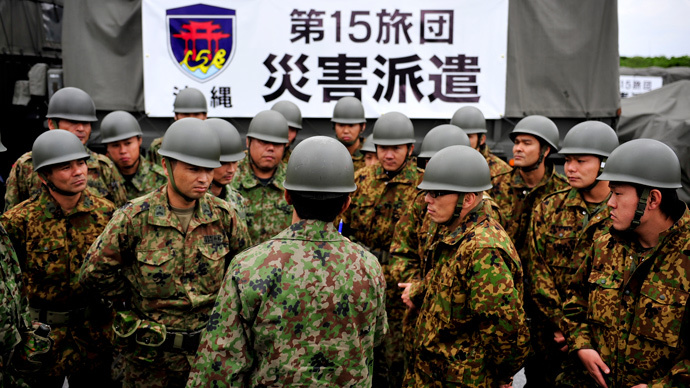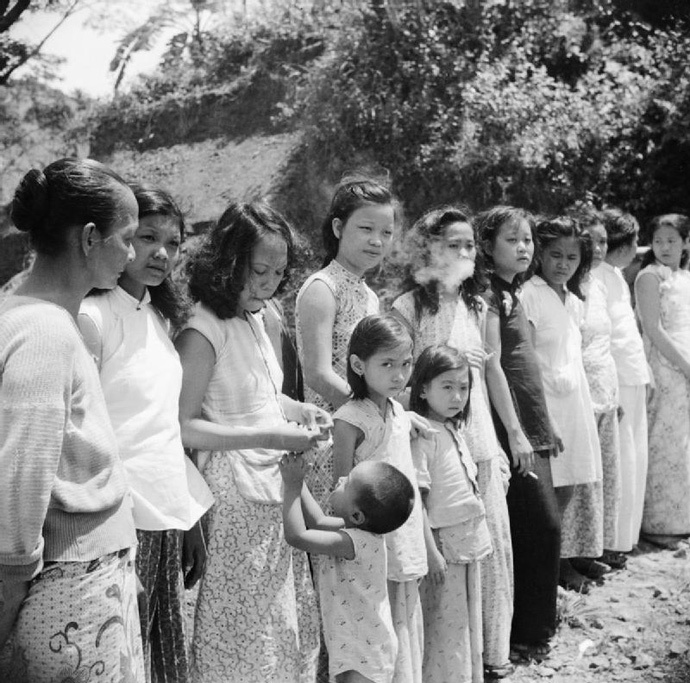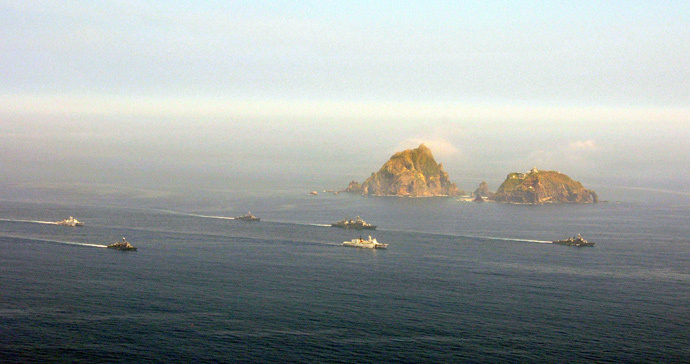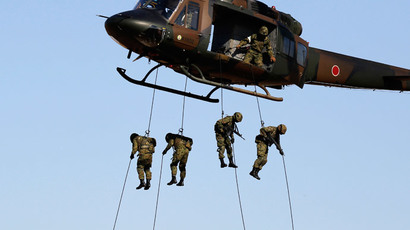S. Koreans say Japan worse threat than China as attitudes ‘worsen sharply’

Fifty-two percent of Japanese people dislike South Korea, while 78 percent of Koreans feel the same way about Japan, with 4 in 10 Koreans believing the countries will go to war in the next few years, according to an authoritative survey.
In its third such annual study, Tokyo’s Genron NPO, a think tank, and Seoul’s East Asia Institute, each interviewed about 1,000 people in their respective countries, ahead of a landmark meeting between the South Korean and Japanese defense ministers.
READ MORE: Japan's cabinet approves legislation expanding military powers
Koreans have been particularly alarmed by Japan, which has recently upped its defense budget, and whose current Prime Minister Shinzo Abe has espoused a rhetoric widely dubbed “new nationalism.” Fifty-eight percent of South Koreans said Japan posed a military threat, fewer than the 83 percent who were fearful of North Korea, but far ahead of the 38 percent who said the biggest danger emanated from Beijing. Last year, only 46 percent of Koreans said that Tokyo was belligerent, but this year 57 percent believed it was not just a threat, but a “militaristic state.”
While few Japanese fear South Korea’s military, only 14 percent regard it as a democracy, and 39 say it is “nationalist” state.
Outside observers might be puzzled by such hostility between two pluralist market economies – both of them close US allies, and facing geopolitical concerns about the same neighbors – but the mistrust is deeply rooted in history.

Japan colonized South Korea in 1910, and maintained its rule until the end of World War II. It was accused of attempting to eradicate the Korean language and culture, and perpetrating thousands of crimes against ordinary citizens. Up to several hundred thousand Korean women may have been roped into becoming “comfort women” – sex servants – for Japanese troops.
“One factor is that South Korean people criticize Japan and its people within the solidified framework characterized by the issues of Japan's historical understanding and territorial disputes, whereas Japanese people object strongly to this kind of persistent South Korean criticism,” wrote Yasushi Kudo, President of Genron, in his foreword to the survey.
While Japan officially acknowledged the maltreatment of “comfort women” in 1993, Abe’s administration has insisted that other countries should stop focusing on the past, while revisionist historians have questioned whether the women were forced into prostitution or chose to go into it voluntarily. While in office, Abe, who previously accused many "comfort women" of being “liars,” avoided making an explicit apology, despite repeated demands from the South Korean leadership.
The symbolic debate has fed into a decades-long land dispute over Liancourt Rocks, the tiny islands between the two countries, which sit on hydrocarbon deposits.
With about only one-fifth of the population of each country having been to the other, more than 90 percent of those surveyed said they based their opinions on domestic television broadcasts.
“Another factor in the hostility is that the two countries' peoples rely on media reports in their respective country, particularly TV reports, to form their views on each other's country,” wrote Kudo.

The cooling means the leaders of the two states have not held talks for three years, and a deal to share military intelligence, to monitor North Korea’s nuclear program, and China’s armaments build-up has been on the shelf since 2012.
During the weekend’s talks between Korea’s defense minister Han Min-koo and his Japanese counterpart Gen Nakatani in Singapore, the first such exchange since 2011, the two discussed reanimating the deal, as well as conducting joint fleet operations and supplying each other’s navies. But even a three-way meeting mediated by US Defense Secretary Ash Carter yielded no specific results. Inevitably, the issue of “comfort women” was raised, without any signs of compromise.
The authors of the survey believe that the continuing diplomatic impasse is hurting both countries.
“As the shift in the balance of power in Northeast Asia continues to move toward China, China is becoming a very important and influential presence to South Korea in many areas, including economic ties and relations with North Korea. In painting a future picture for this part of the world, the same tasks and challenges should be shared by Japan and South Korea,” Kudo summed up.
“Regrettably, the deterioration of public sentiments toward each other's country combines with the wholesale absence of government-to-government communications to obscure the vital importance of bilateral relations.”
Kudo said the “sole encouraging finding” was that over two-thirds of respondents in both countries acknowledged that relations were poor, and needed to be improved.













